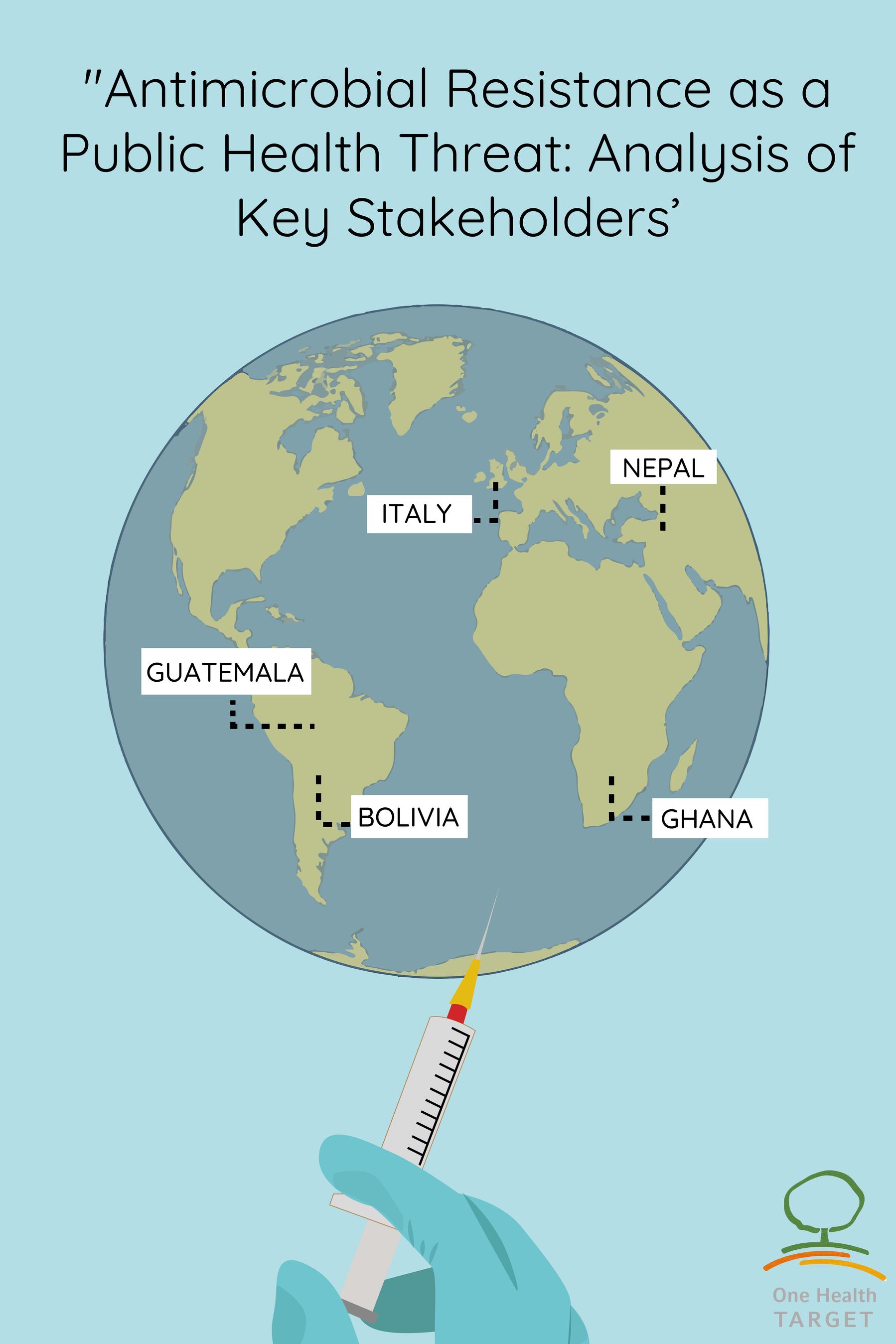Antimicrobial Resistance as a Public Health Threat: An analysis of stakeholder’s opinion from Bolivia, Italy, Ghana, Guatemala, and Nepal
AntiThreat explores how One Health competencies are integrated into the training and practice of health professionals, and how these influence antibiotic use among communities. Through qualitative interviews in Bolivia, Nepal, Italy, Ghana, and Guatemala, the project analyzes knowledge, attitudes, and practices related to antimicrobial resistance (AMR).
The initiative seeks to identify gaps, strengthen professional training, and propose context-specific interventions. By uniting an international team across four continents, AntiThreat advances collaborative strategies to address AMR, one of today’s most pressing global health threats.
Background:
Antimicrobial resistance (AMR) is a growing global health crisis driven by the misuse and overuse of antibiotics in humans, animals, and agriculture. With projections of millions of deaths annually by 2050 if unaddressed, AMR demands urgent action. The AntiThreat project responds to this challenge by adopting a One Health approach, which emphasizes the interconnection between human, animal, and environmental health. By exploring current training processes and knowledge gaps among health professionals, students, and antibiotic users in five countries, Bolivia, Italy, Ghana, Guatemala, and Nepal, this initiative seeks to foster more integrated, systemic, and interdisciplinary efforts to combat AMR.
Objectives:
- Assess how One Health core competencies (e.g., systemic thinking, leadership, interdisciplinary work) are integrated into the education and practice of professionals in human, animal, and environmental health.
- Identify knowledge, attitudes, and practices around antibiotic use among the general public and farmers.
- Develop targeted strategies to improve training, awareness, and collaboration across sectors to reduce the threat of AMR.
Project Responsible: Maria Teresa Solis Soto (Universidad Mayor, Real y Pontificia de San Francisco Xavier de Chuquisaca (USFX) - Bolivia)
Project research team:
- Francesco Nicoli
- Deepak Paudel
- Gloria Ivy Mensah
- Silvana Melini
- Blanca Samayoa



Now select image and section in the widget properties


